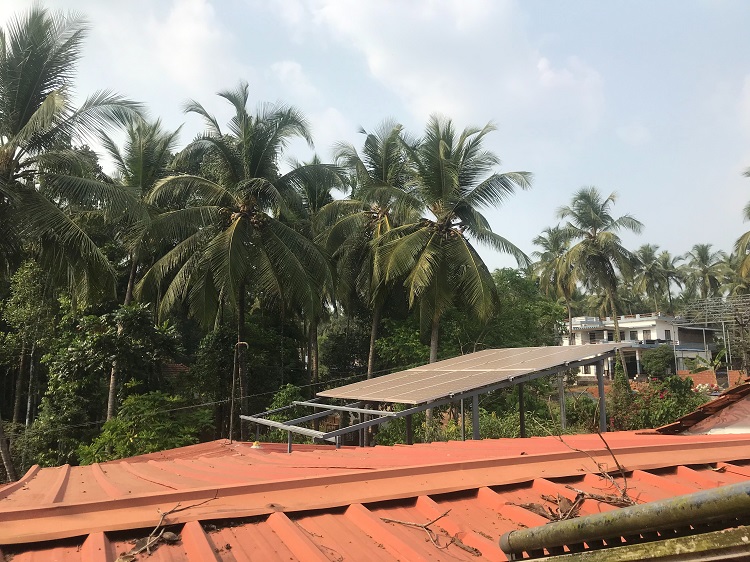On-grid solar power systems vs off-grid solar power systems: their applications and benefits

With the increasing costs of power and electricity, so many companies are shifting to solar energy systems. The Ministry of recent and Renewable Energy (MNRE), Government of India is encouraging solar PV systems for businesses under its Nehru National Solar Mission. India is ranked second among emerging economies to direct towards a transition to clean energy, consistent with a 2018 report by Climate scope.
Commercial and industrial buildings in India, which are supplied with grid electricity at higher rates so, that residential users, find switching to solar systems more affordable.
While shift to solar energy systems, various companies get confused between off-grid and on-grid solar systems. It is important to make the right choice and understand the major differences between off-grid and on-grid solar systems.
On Grid Solar System
An on-grid solar energy system generates power, using the solar energy system and is automatically connected to the utility power system. These systems send excess power generated by the solar energy system to the utility grid or consumers get compensated for the extra power fed back. On grid solar systems connected with the power grid. To satisfy your business requirements you need enough sunlight and if there is not enough sunlight, in that situation, the system runs on the facility supplied by the grid. This system is best when the light goes out.
Businesses can believe in on-grid solar systems to meet their daily needs, as well as earn income from the additional electricity generated. On clear days, buildings can generate sufficient solar energy for electrical appliances, lights, water heating systems, etc.
Off-grid Solar System
Off-grid systems work independently of the grid but have batteries that can store the solar energy generated by the system. The system generally contain of solar panel, battery, charge controller, grid box, inverter, mounting structure, and balancing systems. The panels store enough sunlight during the day and use the surplus power generated at night. These systems are self-sustaining and can provide energy for critical loads in areas where a power grid isn’t available. However, these systems require specialized equipment to function and can be costly to install. These are ideal for businesses that may sustain for a short period with no electricity.
Electricity supply in rural and remote areas – Off-grid solar system can facilitate independent, long-term, and sustainable electricity generation in rural and remote areas. Power back up in areas with frequent electricity cuts – some places in India face frequent power cuts due to power transmission malfunctions, which can hamper the operations of companies and public institutions. Off-grid solar systems can provide an economical and viable long-term backup solution to overcome the problems occurring during frequent power cuts.
Advantages of on grid Solar System.
- On-grid solar systems are very cost-effective and simple to install.
- Businesses can compensate for the value of their investment by paying electricity bills in just 3-8 years. If a personal, commercial or industrial building sets up a solar PV rooftop system it will be eligible to avail an ‘Accelerated Depreciation Benefit’ that is currently 80% in a year.
- At this rate, a business can completely depreciate the entire value of the project in approximately four years. Residential users and business owners can earn a passive income for surplus energy generated by the system.
Advantages of Off- grid Solar System.
- These self-sustainable systems can work independently and don’t rely on the grid.
- They generate enough power that can be stored and used at night or when the power grid is down.
- These are ideal for remote areas where there is no power access from the grid.
- Grid failures and shutdowns will not affect your power supply.
Electricity consumption in India is forecasted to reach 15280 TWh by 2040. The Indian government has set a target of get to a renewable energy generation capacity of 225 GW by 2022 and is offering a variety of benefits together with tax rebates to businesses that shift to renewable solar power. Solar energy systems are a source of unpolluted renewable energy and have numerous benefits depending on the type of system you choose. due to a drop in the prices of solar PV in the last few years together with significant policy-level implementations by the government of India, setting up solar PV technology systems in residential buildings and business organizations has become very lucrative.
If you want to buy Solar panels online and get delivered to your home or village, then you can visit on Loom Solar website.


